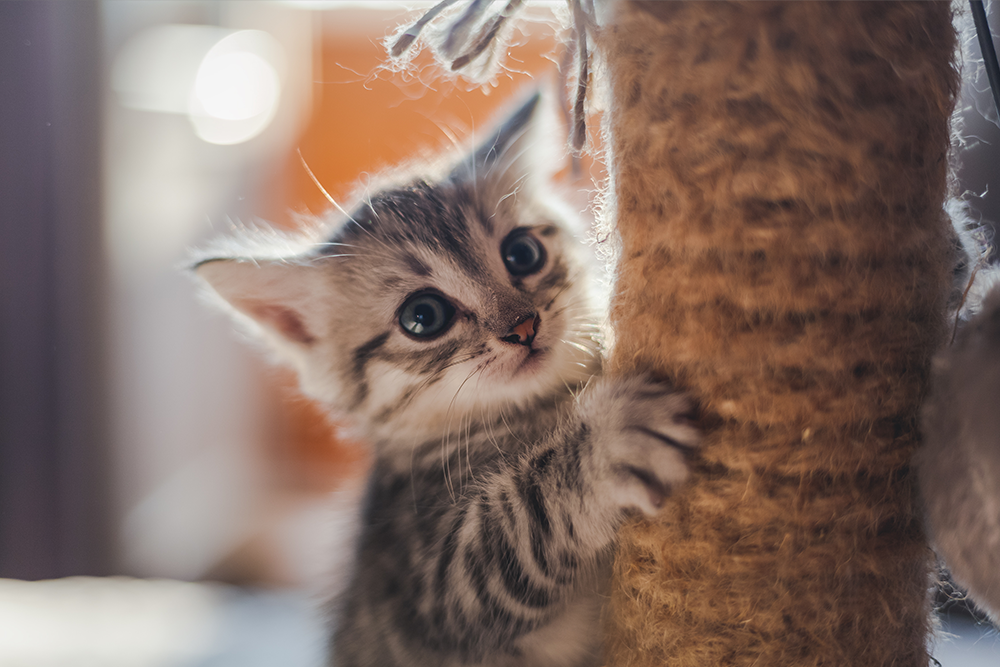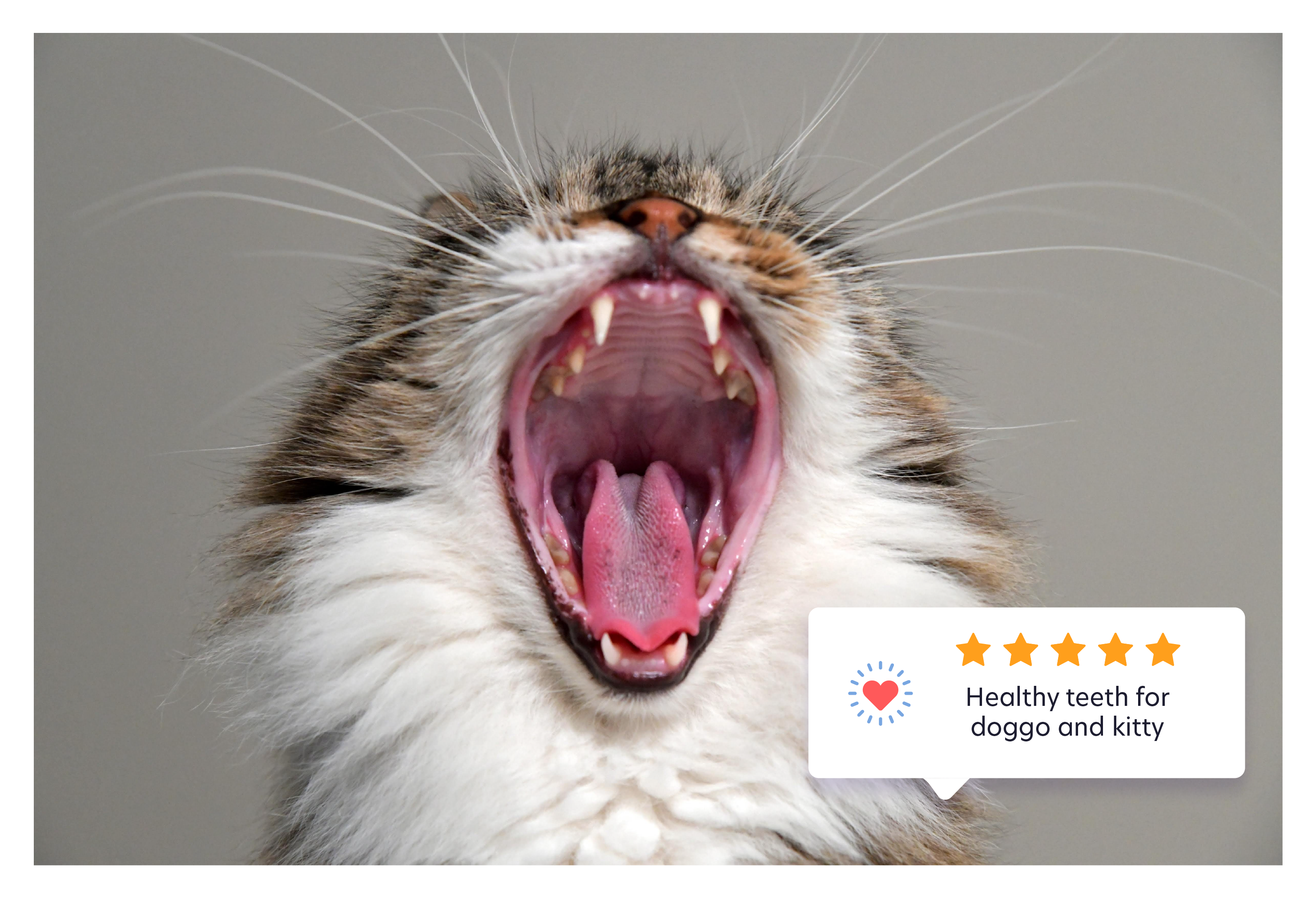.jpg)
What You Need to Know About These 5 Cat Breeds
by Janine DeVault - 10/4/19
Have you ever wondered about your cat’s breed? His breed may seem pretty peripheral, because surely you love your feline friend regardless of his pedigree. But your cat’s breed can reveal valuable information about his temperament as well as potential health concerns. When you know your cat’s breed you gain valuable insight into his origins and history, including environments his breed is accustomed to, and more. In this article we’ll cover five of the most popular cat breeds in the United States and discuss some of their unique care needs.
.jpg)
1. American Shorthair
This good-natured breed flaunts a muscular, medium-sized build and a short, low-maintenance coat that comes in more than 80 different colors and patterns. These cats are popular for their easygoing personality, but the fact that they require minimal grooming is a bonus. They have a dense coat that sheds continually but can be easily maintained with regular brushing.
While this breed has minimal health issues, it is known to suffer from a feline heart disease known as hypertrophic cardiomyopathy (HCM). This disease often remains undiagnosed, but if caught it can be treated or managed with medication. Unfortunately, there is no cure. If you are planning to bring an American Shorthair kitten into your family, ensure that the kitten’s parents have been screened and cleared of this disease.
.jpg)
2. Siamese
Siamese cats are known and loved for their bold, animated personalities and their signature blue eyes. They make lively, devoted companions, and their short coats require minimal maintenance. Because of their wedge-shaped heads, Siamese cats are believed to be more likely to suffer from dental and respiratory problems than other breeds. This breed is also prone to suffer from amyloidosis, which is a buildup of proteins in the essential organs and leads to organ failure. While there is no cure, this condition can be treated with diet and medication.
Boredom is another issue that Siamese cats struggle with. They are highly intelligent, energetic and prone to co-dependence, which means your Siamese may struggle when you are away. Just like with dogs, boredom can lead to destructive behavior, so be sure to create a dynamic environment for your Siamese cat.
.jpg)
3. Maine Coon
Known for their large size and tufted ears, the Maine Coon is a striking breed. Their coat is long and thick and requires regular brushing to remove dead hair and prevent matting. Your Maine Coon may need the occasional bath as well, especially if he spends time outdoors, to remove dirt and keep his coat soft and shiny.
Maine Coons are patient and easygoing companions who enjoy spending time with their people. They are playful and may even learn to fetch as a form of entertainment.
While Maine Coons are generally healthy, they may be prone to hip dysplasia, partly because of their large size. Because of this, it’s important to help your Maine Coon maintain a healthy body weight to avoid putting additional stress on his joints.
.jpg)
4. Russian Blue
With bright green eyes and gorgeous lavender (blue) coats, Russian Blues are sure to catch your eye. These cats are loving and affectionate but also independent. Your Russian Blue won’t mind if you have to go to work all day, as long as he gets quality time with you when you get home.
Russian Blues are creatures of habit and do not enjoy having their routines interrupted. If you’re looking for a cat that will enjoy traveling with you, this is probably not the right breed. However, if you’re looking for a good-natured family cat that gets along with children, the Russian Blue is a promising candidate.
These cats are generally healthy, but they are prone to obesity, which can lead to health complications. It’s really important to keep your Russian Blue on a strict feeding regimen, as she won’t be able to control her cravings on her own.
.jpg)
5. Sphynx
While some cat breeds share physical similarities that can make it difficult to distinguish between them, there will be no question if your cat is a Sphynx. After all, they have no hair!
These hairless cats have grown in popularity in recent years. Because of their lack of hair they are often marketed as a “hypoallergenic” breed, but this claim is not accurate. Allergens are released in a cat’s saliva, not his hair. So, if you are considering adopting a Sphynx cat to work around your allergies, you may wish to reconsider.
Sphynxes make wonderful feline companions as they are friendly, even with strangers. They are generally healthy, but they may be prone to skin conditions. Experts recommend bathing your Sphynx every few weeks to keep his skin healthy and his pores unclogged.
If you’re a cat owner, you may wish to spend time investigating your cat’s breed to better understand her and her needs. Your research may reveal fascinating insights about her temperament that you may not have noticed yet! It may also help prepare you for any health problems she may experience down the road.
And if you’re still considering which cat would be the best fit for your family, familiarizing yourself with different breeds will help you decide. You may be drawn to particular breeds based on their appearance, but are you equipped to manage their energy levels? Can you provide an environment in which they will thrive? These are important considerations to ensure that you and your future cat will live in peace and harmony!
Janine DeVault is a pet writer, animal rescue advocate, and former celebrity dog walker. She lives in Mexico with her three rescue pets, Maia, Fozzy and Kesi.
References
- https://cattime.com/lifestyle/781-the-25-most-popular-cat-breeds
- http://www.pethealthnetwork.com/cat-health/cat-diseases-conditions-a-z/hypertrophic-cardiomyopathy-hcm-cats
- https://cattime.com/cat-breeds/siamese-cats#/slide/1
- http://aubreyamc.com/feline/siamese/
- https://mainecoon.org/unique-health-issues-affecting-maine-coons/
- https://www.petmd.com/cat/breeds/c_ct_russian_blue
- https://www.smithsonianmag.com/science-nature/theres-no-such-thing-hypoallergenic-cat-180968819/
- http://www.vetstreet.com/cats/sphynx#1_4uf48kos
- http://www.vetstreet.com/cats/sphynx#grooming




.jpg)

.jpg)

















































































.jpg)













